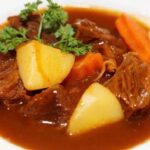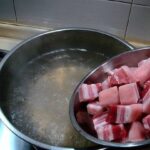Boiling meat is an art, but not everyone knows that certain seemingly harmless ingredients can ruin the dish’s natural flavor. These additions can dry out the meat, alter its taste, or introduce unwanted aromas.
Here are 3 ingredients chefs warn against using when boiling meat:
1. Black Pepper: Overpowers the Meat’s Natural Aroma
Black pepper is a staple in stir-fries and braised dishes, but it’s a poor match for boiled meat. Its strong flavor can overwhelm the delicate, natural taste of pork.
Pepper also toughens the meat, making it drier and less tender after boiling.
Even when stewing pork, avoid pepper, as it diminishes the meat’s appeal.
To preserve the meat’s natural fragrance, save the pepper for other dishes.
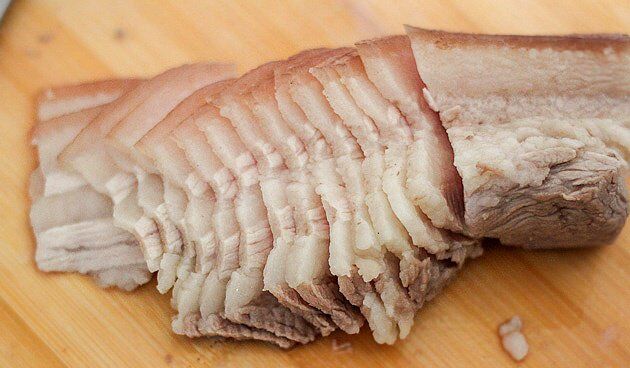
2. Fructus Aurantii (Dried Bitter Orange): Ideal for Beef, Not Pork
Fructus Aurantii, a common herb in traditional medicine, is often used to tenderize beef during stewing. However, it’s unsuitable for pork:
– Pork is naturally tender and doesn’t require this herb’s softening effect.
– Adding Fructus Aurantii imparts a slight sourness, masking the pork’s signature aroma.
– The meat’s flavor is significantly diminished.
Avoid using Fructus Aurantii when boiling or stewing pork, pork ribs, or pork hocks.
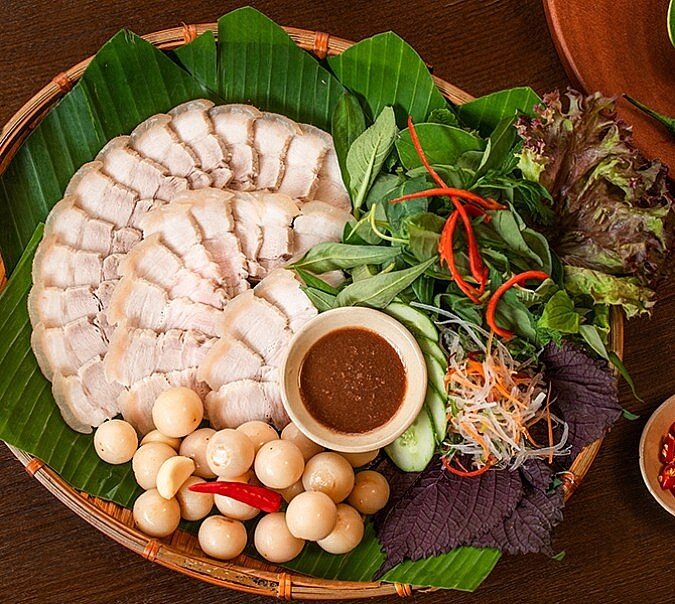
3. Cooking Wine: Leaves a Lingering, Unpleasant Odor
Cooking wine is typically used to eliminate fishy odors in meat or seafood. However, when boiling pork, it has the opposite effect:
– At low temperatures, the alcohol doesn’t fully evaporate.
– The meat develops an odd, pungent smell, compromising its natural flavor.
– The overall taste of the boiled dish is noticeably affected.
Proper Use of Cooking Wine:
– Add it during marination or brief blanching.
– Use it in stir-fries over high heat to quickly evaporate and remove odors.
For perfectly boiled pork that’s tender, fragrant, and visually appealing, remember:
– Add a crushed shallot to the boiling water: it eliminates odors and enhances aroma.
– Skim the foam regularly: keeps the broth clear and reduces odors.
For white, non-discolored meat:
– Add a splash of vinegar and salt to the boiling water.
– Once boiling, cook the meat for 3 minutes, then discard the water.
– Rinse the meat with warm water.
– Boil the meat again in fresh water until cooked.
– This method ensures the meat remains white, tender, and free from discoloration.
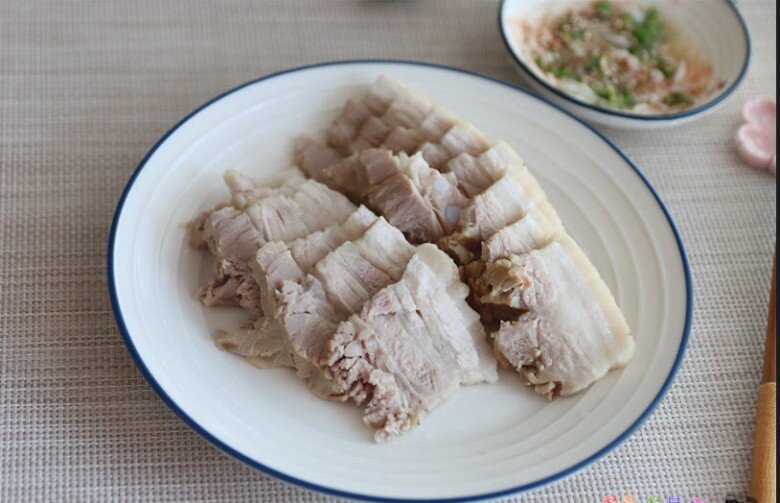
Masterchef in the Making: 16 Fun Ways to Teach Your Kids Cooking Skills This Summer, Tailored by Age
Introducing your child to the world of cooking is an invaluable asset in their journey of self-discovery and life skills. The kitchen is a magical place where young minds can explore their creativity, cultivate a sense of responsibility, and develop a deeper understanding of the world around them. It is a safe haven for self-expression and an essential step towards independence.
The Ultimate Beef Stew: A Mouthwatering, Tender Delight
“Prepare to tantalize your taste buds with this mouth-watering dish! We’re about to take you on a culinary journey as we unveil the secrets to creating this delectable treat in the comfort of your own home. With our detailed guide, you’ll be whipping up this culinary masterpiece in no time, impressing your family and friends with your newfound culinary prowess. So, get ready to don your chef’s hat and embark on a flavorful adventure!”
The Perfect Pork: How to Boil Meat Without the Toxins.
“Washing raw meat is a controversial practice. When hot water is applied to unwashed meat, the outer layers of muscle fibers contract, trapping any impurities within. This results in a potentially harmful absorption of contaminants back into the meat. Therefore, it is always advisable to thoroughly clean meat prior to cooking to ensure the meat’s surface doesn’t reabsorb any unwanted elements.”

























